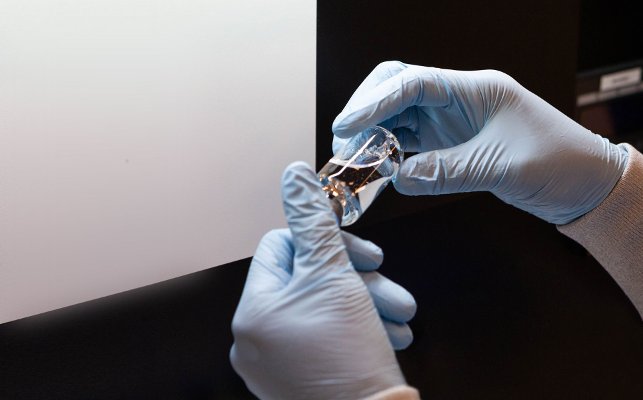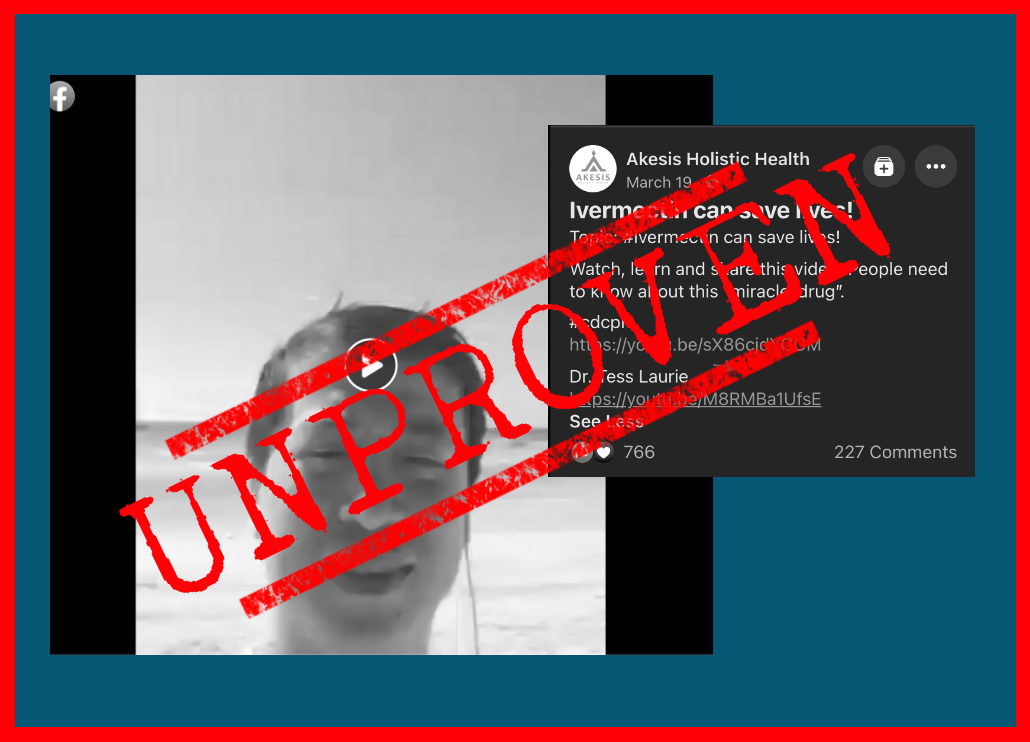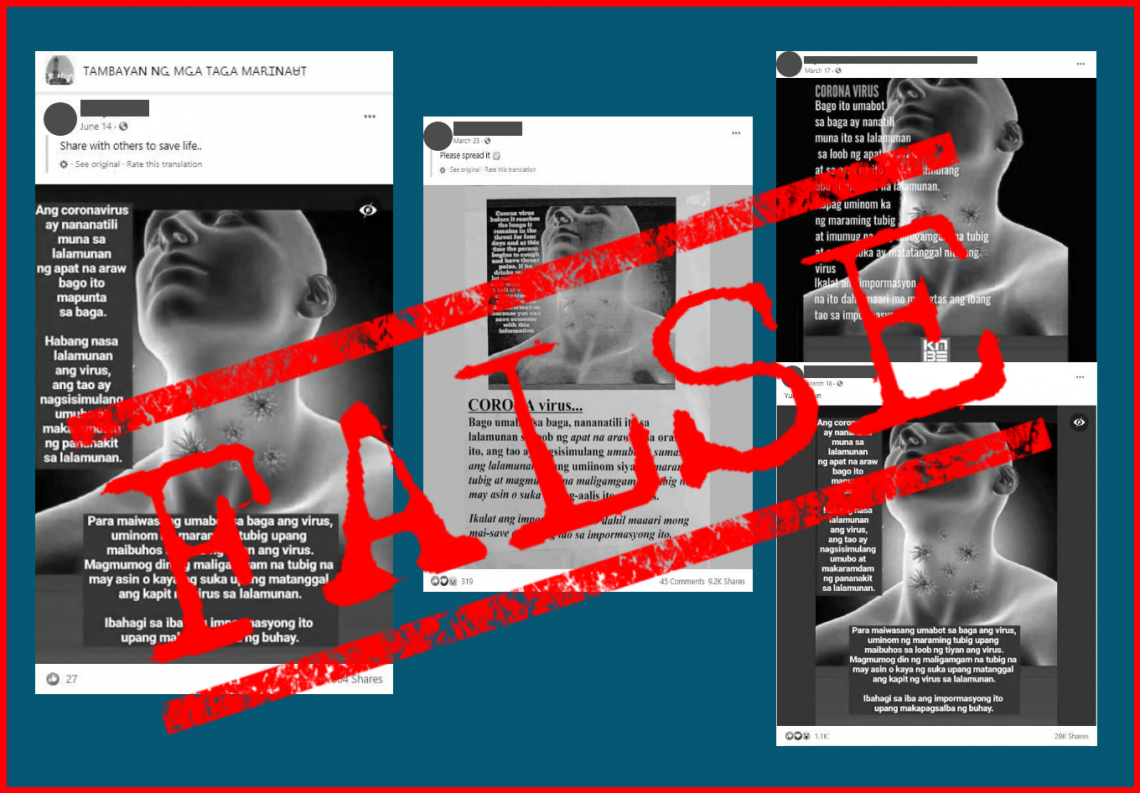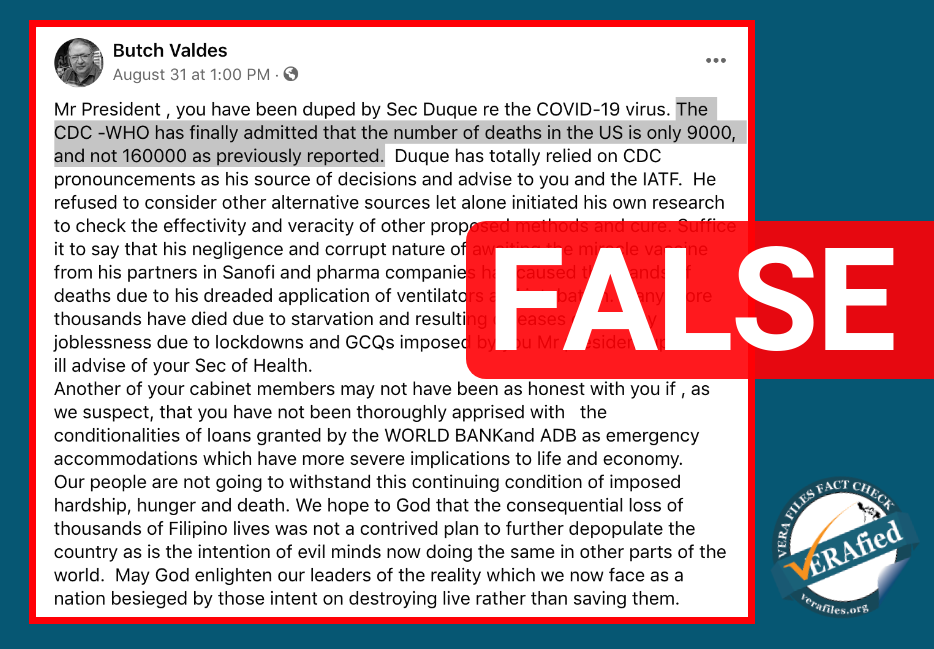The World Health Organization (WHO) presented on Oct. 15 “conclusive” findings in the interim results of its Solidarity Therapeutics Trial, six months after starting a worldwide search for an effective treatment drug for the coronavirus disease 2019 (COVID-19).
The trial, which was coordinated by WHO, first evaluated the effects of four repurposed antiviral drugs in treating the new disease: Remdesivir, Lopinavir/Ritonavir, Lopinavir/Ritonavir with Interferon beta-1a, and Hydroxychloroquine.
What do the initial results say and what does this mean for COVID-19 treatment? Here are three things you need to know:
1. What is the WHO Solidarity Therapeutics Trial?
The WHO Solidarity Therapeutics Trial is an international randomized clinical trial of initially four treatment options to see if they will result in improving clinical outcomes for COVID-19 patients — specifically their effects on mortality, need for ventilators, and duration of hospital stay, compared with patients who received standard of care.
The original treatment options evaluated were Remdesivir, Lopinavir/Ritonavir, Lopinavir/Ritonavir with Interferon beta-1a, and Hydroxychloroquine.
All study drugs were repurposed. They were originally meant for:
Each treatment was scheduled to last more than seven days. Intake of the drugs was stopped once patients were cleared for discharge or when sufficient data had been gathered.
The trial is “adaptive,” which means “unpromising drugs” may be dropped from the study while others may be added.
As of Oct. 2, the trial has pooled over 12,000 patients from 500 participating hospitals in at least 30 countries, including the Philippines.
Only consenting COVID-19 in-patients who are at least 18 years old are eligible to join the study.
Based on data from the Department of Health (DOH), a total of 1,146 Filipino patients have joined the trial, with 588 patients in public and 558 in private hospitals, as of Oct. 12. Hospitals are still recruiting patients for the ongoing trial.
The Single Joint Research Ethics Board, an accredited research ethics committee organized by the DOH, approved the clinical trial in the Philippines on April 17.
2. What were the trial’s initial findings?
The four treatments evaluated had “little or no effect on overall mortality, initiation of ventilation and duration of stay in hospitalized patients,” as stated by a WHO press release. The treatments also showed no notable effect in any subgroup defined by age or need for assisted ventilation.
These initial findings were based on the results observed in 11,266 patients from 405 hospitals in 30 participating countries, who were administered one among the four treatment options between March 22 and Oct. 4, 2020, according to the preprint of the study.
Of the total participants, 9,120 patients were below 70 years old, while 912 others were already ventilated in the beginning of the study.
Oral drug Lopinavir, a licensed medicine for the treatment of human immunodeficiency virus (HIV) infection, did not show any definitive protective effect on patients who were able to take it.
The trials for Hydroxychloroquine and Lopinavir/Ritonavir were discontinued on June 18 and July 4, respectively, upon the recommendation of the Solidarity Trial’s International Steering Committee. Evidence had shown that the two drugs “produce little or no reduction in the mortality of hospitalized COVID-19 patients when compared to standard of care.”
WHO clarified, however, that this recommendation was applied only to hospitalized patients participating in the Solidarity Trial and “does not affect the possible evaluation in other studies of Hydroxychloroquine or Lopinavir/Ritonavir in non-hospitalized patients or as pre- or post-exposure prophylaxis for COVID-19.”
So far, only corticosteroids have been “proven effective” in treating patients with severe and critical cases of COVID-19, according to WHO. The organization recommended its use in September specifically for such patients under the supervision of a qualified physician.
Dexamethasone, a corticosteroid, was used as part of the treatment of United States (U.S.) President Donald Trump, who tested positive for the virus on Oct. 2.
Despite these results, the clinical trial for Remdesivir continues, as reiterated by Health Undersecretary Maria Rosario Vergeire in a press briefing on Oct. 26:
“They (WHO) would want more information, they would want more data and they would want more accurate findings para sa Remdesivir, para masuportahan ‘yung kanilang (to support their) initial na resulta tungkol sa (results on) Remdesivir. So, itutuloy pa rin po natin ang [pag-administer ng] (we will continue administering) Remdesivir.”
Source: Department of Health Official Facebook Page, DOH Beat COVID-19 Media Forum | October 26, 2020, Oct. 26, 2020, watch from 38:30 to 38:52
3. What does this mean for COVID-19 treatment?
Following the trial’s initial results, the DOH is updating its guidelines to include new study drugs in the roster of potential COVID-19 therapies.
In a letter to VERA Files on Oct. 21, Vergeire said:
“The Department of Health acknowledges the decision of the World Health Organization to evaluate other treatments that can possibly be used for COVID-19…For this reason, we are dependent on the results and analysis of scientific studies (e.g. Solidarity Trial) that are being conducted.”
According to DOH, Interferon has also been dropped from trial due to evidence showing it did not reduce the mortality rate among patients who took it.
In August, WHO recommended the inclusion of Acalabrutinib in the Solidarity Trial.
The drug is a U.S. Food and Drug Administration (FDA)-approved therapy for chronic lymphocytic leukemia, a type of cancer that starts in the bone marrow and affects vital organs, such as the liver and spleen.
In her Oct. 26 press briefing, Vergeire said doses of Acalabrutinib had already arrived in the country on Oct. 24. She also said:
“Tapos ‘yung isa pang susubukan ay ‘yung monoclonal antibody, so ‘yan po ay isasama na dito po sa pag-aaral ng WHO or clinical trial (We will also be testing monoclonal antibody (as treatment), so that is now included in WHO’s study or clinical trial). So we will start with that.”
Source: Department of Health Official Facebook Page, DOH Beat COVID-19 Media Forum | October 26, 2020, Oct. 26, 2020 watch from 38:13 to 38:28.
Monoclonal antibodies are laboratory-made antibodies that target a specific virus, such as the COVID-19 in this case, according to health experts at Meedan. Antibodies are proteins the immune system produces which help the body fight diseases and viruses.
As of Oct. 12, Western Visayas Medical Center in Iloilo City and Chong Hua Hospital in Cebu City have joined the clinical trial.
Sources
World Health Organization, “Solidarity” clinical trial for COVID-19 treatments, Accessed Oct. 19, 2020
World Health Organization, A Coordinate Global Research Roadmap: 2019 Novel Coronavirus, March 2020
World Health Organization, Coronavirus disease (COVID-19): Hydroxychloroquine, June 19, 2020
World Health Organization, The Solidarity Trial, April 16, 2020
U.S. National Library of Medicine, Lopinavir and Ritonavir, Accessed Oct. 22, 2020
National Center for Biotechnology Information, The journey of Remdesivir: from Ebola to COVID-19, April 14, 2020
New England Journal of Medicine, A Randomized, Controlled Trial of Ebola Virus Disease Therapeutics, Dec. 12, 2019
Gilead Sciences, Inc., Remdesivir Development Fact Sheet, Accessed Oct. 22, 2020
American College of Rheumatology, Hydroxychloroquine (Plaquenil), Accessed Oct. 22, 2020
Centers for Disease Control and Prevention, Medicines for the Prevention of Malaria While Traveling: Hydroxychloroquine (Plaquenil™), Accessed Oct. 22, 2020
Johns Hopkins Lupus Center, Treating Lupus with Anti-Malarial Drugs, Accessed Oct. 22, 2020
Lupus Foundation of America, Hydroxychloroquine: Benefits, Side Effects, and Dosing, Accessed Oct. 22, 2020
Expert Opinion on Drug Safety, Hydroxychloroquine in systemic lupus erythematosus (SLE), Dec. 14, 2016
Johns Hopkins Lupus Center, How Lupus Affects the Immune System, Accessed Oct. 22, 2020
U.S. National Library of Medicine, Lopinavir and Ritonavir, Accessed Oct. 22, 2020
U.S. Food and Drug Administration, KALETRA (lopinavir and ritonavir) Label, Accessed Oct. 22, 2020
National Cancer Institute, Lopinavir/Ritonavir, Accessed Oct. 22, 2020
U.S. National Library of Medicine, Interferon Beta-1a Intramuscular Injection, Accessed Oct. 22, 2020
University of Rochester Medical Center Health Encyclopedia, Multiple Sclerosis (MS), Accessed Oct. 22, 2020
U.S. National Library of Medicine MedlinePlus Magazine, Multiple sclerosis: What you need to know, July 13, 2018
Multiple Sclerosis Association of America, The Multiple Sclerosis Process and Symptoms, Accessed Oct. 22, 2020
National Institute of Child Health and Human Development, What are the parts of the nervous system?, Jan. 10, 2018
ScienceDirect, Translational Regenerative Medicine: Central Nervous System, 2015
Department of Health, Philippine Solidarity Therapeutics Trial Data as of Oct. 12, 2020, Oct.26, 2020
Department of Health, Single Joint Research Ethics Board Brochure, Accessed Oct. 29, 2020
Department of Health, PH SOLIDARITY TRIAL FOR COVID-19 TREATMENTS RECEIVES GREEN LIGHT FROM ETHICS REVIEW BODY PRESS RELEASE/22 APRIL 2020, April 22, 2020
MedRxiv, Repurposed antiviral drugs for COVID-19 –interim WHO SOLIDARITY trial results, Oct. 15, 2020
World Health Organization, Corticosteroids for COVID-19, Sept. 2, 2020
World Health Organization, WHO updates clinical care guidance with corticosteroid recommendations, Sept. 2, 2020
Centre for Evidence-Based Medicine, Lopinavir/ritonavir: A rapid review of effectiveness in COVID-19, April 14, 2020
U.S. National Library of Medicine, Lopinavir and Ritonavir, Accessed Oct. 22, 2020
ClinicalInfo, Drug Database: Lopinavir/Ritonavir, Accessed Oct. 22, 2020
World Health Organization, WHO discontinues Hydroxychloroquine and Lopinavir/Ritonavir treatment arms for COVID-19, July 4, 2020
World Health Organization, Corticosteroids for COVID-19: Living Guidance, Sept. 2, 2020
World Health Organization, WHO updates clinical care guidance with corticosteroid recommendations, Sept. 2, 2020
World Health Organization, Coronavirus disease (COVID-19): Dexamethasone, June 25, 2020
National Public Radio, Trump Was Treated With Steroids: How These Drugs Are Used For COVID-19 Patients, Oct. 8, 2020
Australia Broadcasting Corporation, Donald Trump is taking dexamethasone as part of COVID-19 treatment, Oct. 5, 2020
Department of Health Official Facebook Page, DOH Beat COVID-19 Media Forum | October 26, 2020, Oct. 26, 2020
World Health Organization, Novel Coronavirus Disease (COVID-19) Situation Update Report No.30, Aug. 24, 2020
U.S. Food and Drug Administration, CDER Breakthrough Therapy Designation Approvals, Dec. 31, 2019
American Cancer Society, What Is Chronic Lymphocytic Leukemia?, Accessed Oct. 26, 2020
University of Rochester Medical Center Health Encyclopedia, Chronic Lymphocytic Leukemia (CLL): Introduction, Accessed Oct. 26, 2020
National Health Service UK, Chronic lymphocytic leukaemia, Accessed Oct. 26, 2020
Illinois Department of Public Health, Leukemia (Blood Cancer), Accessed Oct. 26, 2020
Canadian Cancer Society, Stages of chronic lymphocytic leukemia (CLL), Accessed Oct. 26, 2020
National Organization for Rare Disorders, Chronic Lymphocytic Leukemia, Accessed Oct. 26, 2020
Learn About Covid 19, What do we know about monoclonal antibodies as part of a treatment or vaccine for COVID-19?, Aug. 11, 2020
Global Alliance for Vaccines and Immunisation, What are monoclonal antibodies – and can they treat Covid-19?, Oct. 7, 2020
National Human Genome Research Institute, Antibody, Oct. 26, 2020
Johns Hopkins Medicine, What are antibodies?, Accessed Oct. 26, 2020
(Guided by the code of principles of the International Fact-Checking Network at Poynter, VERA Files tracks the false claims, flip-flops, misleading statements of public officials and figures, and debunks them with factual evidence. Find out more about this initiative and our methodology.)





